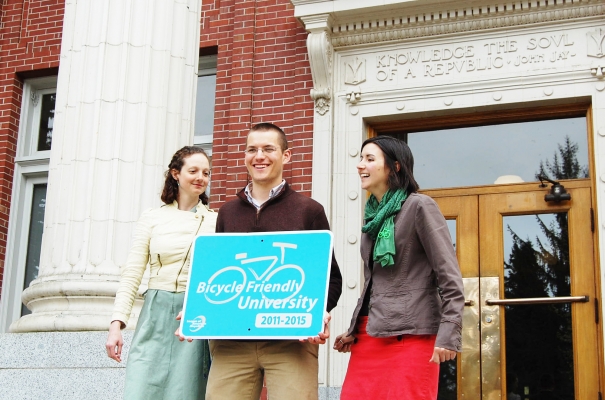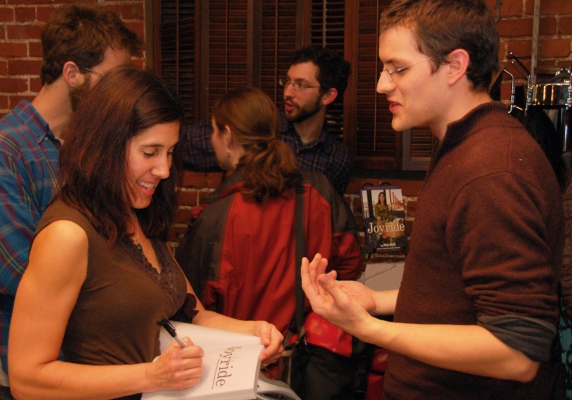A new transportation class at the University of Oregon, launched in January 2013 and funded by grants from OTREC and NITC, by all accounts had a wonderful first term.
Conceived as part of the curriculum for the Oregon Leadership in Sustainability (OLIS) program at U of O, the course, titled Sustainable Transportation, will be a permanent part of the OLIS class roster and will be open to all graduate students at the university.
The class this winter, led by instructors Ann Scheerer and Larisa Varela, taught applied research in a real-world setting. Students worked on planning projects for the university and for its home community, the City of Eugene, Ore.
On March 20, 2013, U of O's Transportation and Livability Student Group, LiveMove, hosted a public event where students were invited to present their research and interested community members were invited to attend.
The day of the presentations in Eugene was exciting; the “icing on the cake” for Scheerer. Marc Schlossberg, OTREC/NITC executive committee member at U of O and faculty advisor for LiveMove, was there, and so were some professors from the planning department, staff from the sustainability office, and quite a few local transportation advocates.
Scheerer, a...
Read more

